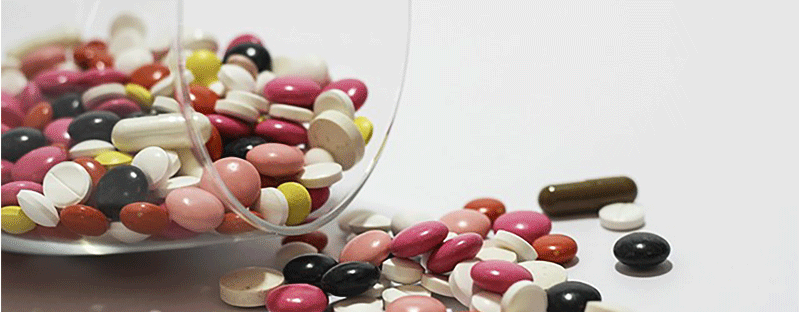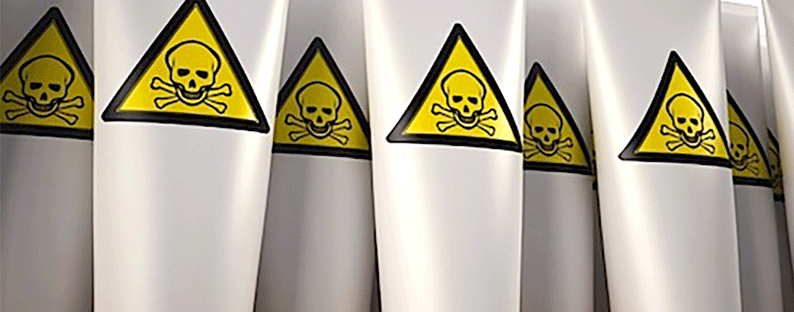Pharmacy Regulations
We're becoming increasingly aware of the dangers of buying unlicensed medicines online. The tragic news of Eloise Parry's death from taking unlicensed diet pills acts as a harrowing warning to those of us that regularly buy medication online. It's hard not to get lured in by seemingly good deals, but it's vital that you remain safe and buy from licensed pharmacies when it comes to any type of medication.
The majority of online pharmacies are reputable and safe, but sadly there will always be people who abuse the system and sell medicines illegally or irresponsibly. In order for you to stay safe when buying online, we've put together a handy list of things you need to know when purchasing medication online.
How do I know if an online pharmacy is legitimate?
Any pharmacy, be it online or on the local high street, has to be registered with the GPhC. A legitimate pharmacy will clearly display the GPhC logo on the website, which is not only a visual sign of authenticity but a clickable link that will take visitors to the GPhC website where they can confirm the registration details of the pharmacy for themselves.
It's essential that you do not buy pharmacy medicines from anywhere that does not clearly display the GPhC logo. If you're ever unsure, you can check to see if a pharmacy is officially registered here.
Is the medication safe for me?

By law, you need to answer certain questions in order to buy pharmacy-regulated medication. Of course, it's important to remember that you can legally buy certain medications without the supervision of a pharmacist. For example, you could buy Strepsils from your local supermarket and this would be perfectly legal. Medications come in different categories; general sales lines, pharmacy lines and prescription only medication. A general sales line product like Strepsils can be bought with no pharmacist supervision, but a pharmacy only product like Benylin comes with stricter guidelines so only licensed pharmacies can sell it, and would need to ask the patient certain questions before legally selling it.
These questions may seem like an annoyance, but they will ensure that the medication is suitable for you. If you aren't required to answer any questions before buying a pharmacy product, then this is another sign that the pharmacy you're buying from is not legitimate. You should check the classification of the product you want before buying. It's also worth knowing that any pharmacy medication will have a P symbol on the box. Also, as an example, you can see that this pharmacy product on our site states that it's a pharmacy medicine, and asks you to answer certain questions before checkout; this is the type of thing that you should expect when buying pharmacy medication online.
Does my product require licensing?
In order to be sold in the UK, all medicines require licensing. A license indicates that the medication has been vigorously tested and that the benefits of the medicine outweigh the risks. It is essential that you only use licensed medication. All medication comes with a certain degree of risk, but the risk is significantly lower if a product has been tested thoroughly. It's important to remember that just because a product is legal, this doesn't mean that it's safe. Many of the diet pills you can buy online are only considered legal because they haven't been on the market long enough to be banned.
Counterfeit beauty products.

Another problem that's rearing its ugly head is the dangers of buying cosmetics online. Lately there's been a lot of news about counterfeit beauty products being sold online, which bring about health concerns of their own. From rat droppings to human urine, the things found in some of these counterfeit products wouldn't look out of place in one of our Revolting Remedy articles!
Unfortunately, you don't need a license to sell beauty products so it can be more difficult to spot fakes. However, there are several things you can consider:
- Is the product suspiciously cheap? A lot of companies run different promotions from time to time, but if the price seems substantially lower than usual then chances are that it's fake. Without being cynical, if it sounds too good to be true, it probably is
- Are the words “genuine" and/or “authentic" being overused? Let's face it, if they have to overly specify that their product is real then they're probably fooling themselves.
- Do you feel pressurised to buy now? When it comes to fake products, the retailer is going to want to shift them fast so they'll often apply the pressure with phrases such as “buy now!" and “last few available" repeatedly.
Whilst we all love saving a bit of money, you don't want to pay the alternative price of your health. There's no reason for you to miss out on bargains, just treat online retailers with a little caution when it comes to buying medication online.
If you want to speak to a registered pharmacist about any medication concerns, then contact us today.